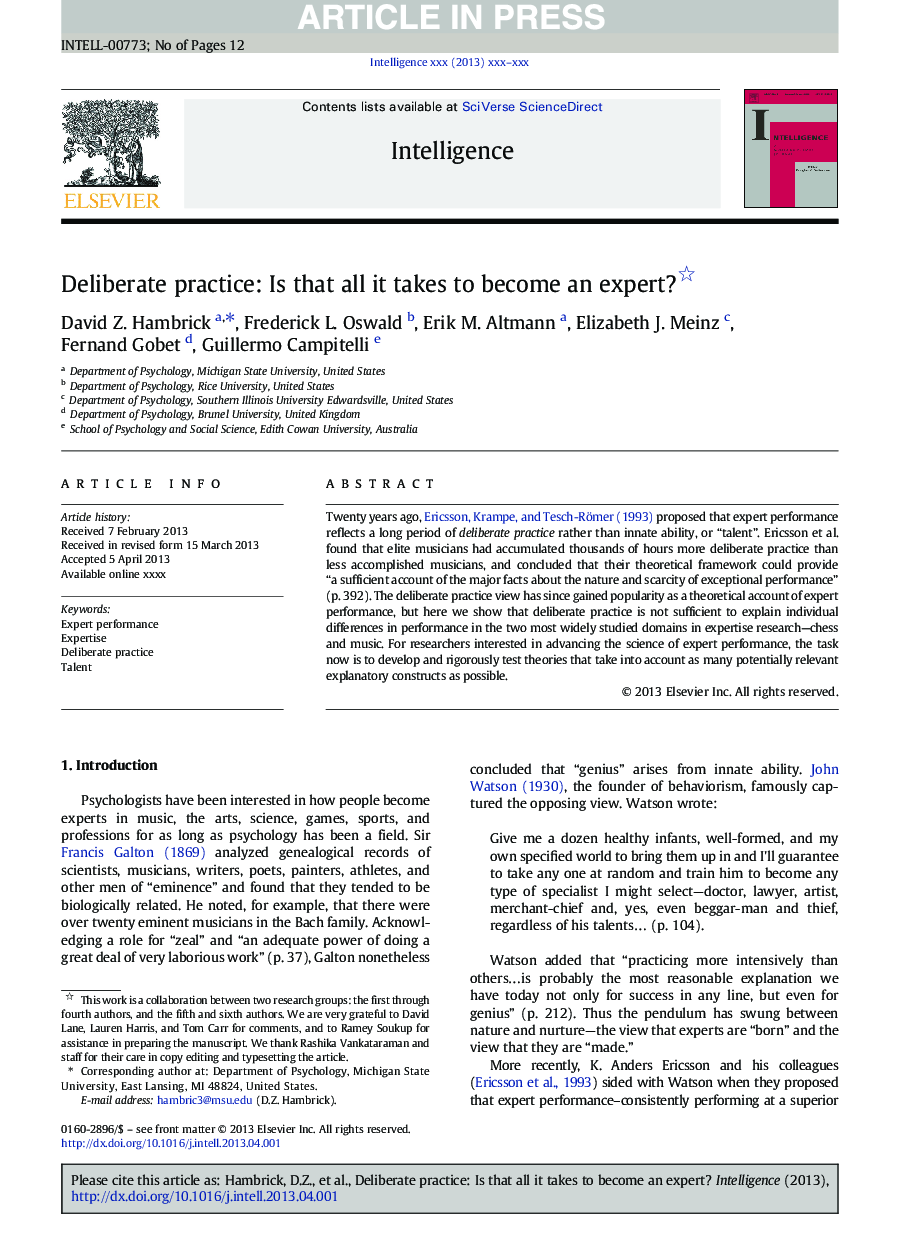| Article ID | Journal | Published Year | Pages | File Type |
|---|---|---|---|---|
| 7294404 | Intelligence | 2014 | 12 Pages |
Abstract
Twenty years ago, Ericsson, Krampe, and Tesch-Römer (1993) proposed that expert performance reflects a long period of deliberate practice rather than innate ability, or “talent”. Ericsson et al. found that elite musicians had accumulated thousands of hours more deliberate practice than less accomplished musicians, and concluded that their theoretical framework could provide “a sufficient account of the major facts about the nature and scarcity of exceptional performance” (p. 392). The deliberate practice view has since gained popularity as a theoretical account of expert performance, but here we show that deliberate practice is not sufficient to explain individual differences in performance in the two most widely studied domains in expertise research-chess and music. For researchers interested in advancing the science of expert performance, the task now is to develop and rigorously test theories that take into account as many potentially relevant explanatory constructs as possible.
Related Topics
Social Sciences and Humanities
Psychology
Experimental and Cognitive Psychology
Authors
David Z. Hambrick, Frederick L. Oswald, Erik M. Altmann, Elizabeth J. Meinz, Fernand Gobet, Guillermo Campitelli,
